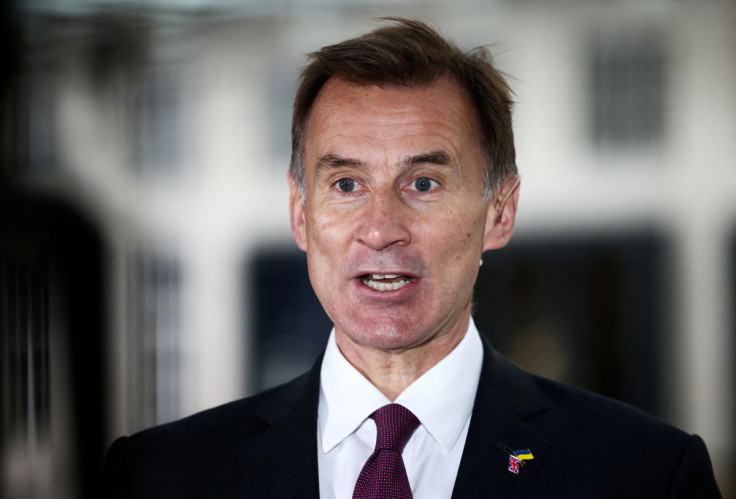Jeremy Hunt Announces Significant Tax Cut Amidst Downturn in Growth Forecast
Hunt defended the move, asserting that it aligns with the government's commitment to supporting businesses and individuals during challenging times.

In a bold fiscal move, former Health Secretary and Chancellor of the Exchequer Jeremy Hunt has unveiled a major tax cut, signalling a decisive economic strategy in the face of a notable downgrade in growth forecasts.
The unexpected announcement has ignited debates about the government's financial priorities and the potential implications for the nation's economy.
Hunt, a key figure in the Conservative Party, revealed the tax cut proposal to employee National Insurance from 12 per cent to 10 per cent for 27 million workers during a press conference.
Among the array of announcements are adjustments to benefits programs, a halt on alcohol duty increases, supplementary business tax incentives, allocations for artificial intelligence and manufacturing investments, and an elevation in the minimum wage were notable highlights.
This change emphasizes its role in stimulating economic activity and providing much-needed relief for both businesses and individuals. The tax reduction aims to boost consumer spending and encourage investment, fostering a climate of economic recovery.
The tax cut proposal is poised to impact various sectors, with reductions expected in income tax rates and business taxes.
Hunt defended the move, asserting that it aligns with the government's commitment to supporting businesses and individuals during challenging times.
He emphasized the need for proactive measures to bolster the economy and maintain competitiveness on the global stage.
Critics, however, have raised questions about the timing of such a significant tax cut, particularly in the face of a lowered growth forecast.
Growth forecasts downgraded sharply to 0.6 per cent this year and 0.7 per cent next year, from the 1.8 per cent and 2.5 per cent predicted in March.
Lindsay James, an investment strategist at Quilter Investors said: "It is clear that interest rates are weighing on the wider economy and making up for these periods of lost growth will be difficult for the U.K. despite the government's best intentions.
"This was billed as an 'Autumn Statement for growth' and the government is attempting to give the economy a shot in the arm, but it is questionable how effective and long-lasting this growth will be."
Opposition leaders argue that the government should prioritize addressing the root causes of the economic downturn rather than implementing measures that might strain public finances further.
The unexpected nature of the tax cut announcement has sparked reactions from economists, business leaders, and the public alike.
Some economists express optimism, believing that a reduction in taxes could indeed stimulate economic activity and create a positive ripple effect.
On the other hand, sceptics caution that the move might not be sufficient to offset the challenges posed by the subdued growth forecast.
Business leaders welcomed the tax cut proposal, with many viewing it as a lifeline for struggling enterprises.
The reduction in business taxes is expected to alleviate financial burdens on companies, potentially fostering an environment conducive to growth and job creation.
As the 2024 election approaches and the Conservatives find themselves significantly behind in the polls, James remarked that this tax cut is "much more political in nature".
"The giveaways announced today are somewhat of a gamble by the government given the state of play with price rises and economic growth. Inflation is still running at more than double the Bank of England's target. It could be that there is even less headroom for giveaways in the Spring."
"As a result, today's decisions are being driven much more by the polls than any fundamental improvement in the state of the UK's long-term finances," she said.
As the government seeks to navigate a complex economic landscape, the tax cut announcement is set to be a focal point of parliamentary discussions.
The opposition is expected to scrutinize the proposal, seeking clarity on how the government plans to mitigate any potential impact on public services and social welfare programs.
The coming weeks will likely see intense debates and negotiations surrounding Jeremy Hunt's tax cut initiative.
The decision's long-term effects on the UK's economic recovery and the government's ability to address the challenges outlined in the downgraded growth forecast will be closely monitored, shaping the trajectory of the nation's fiscal policy in the months to come.
© Copyright IBTimes 2025. All rights reserved.






















